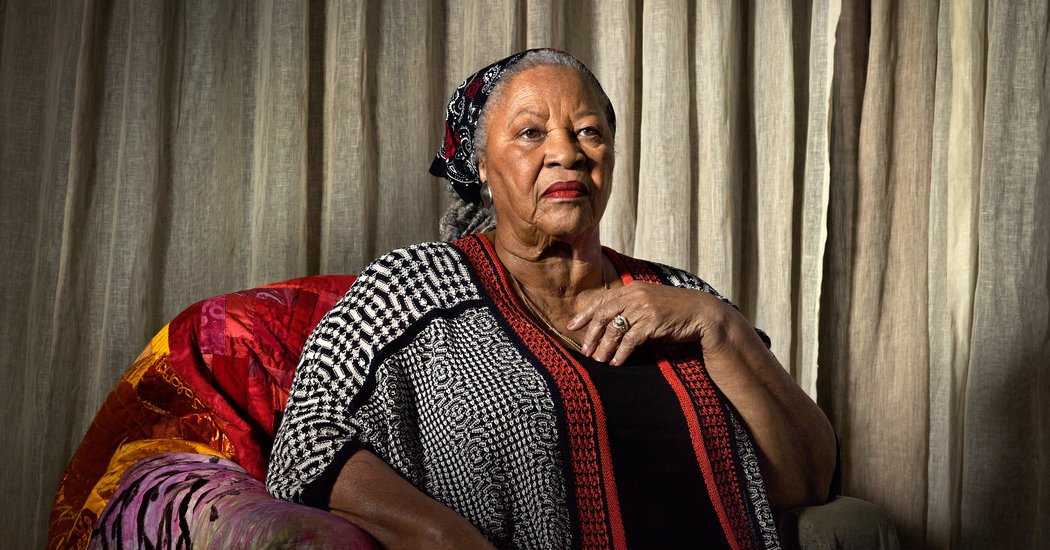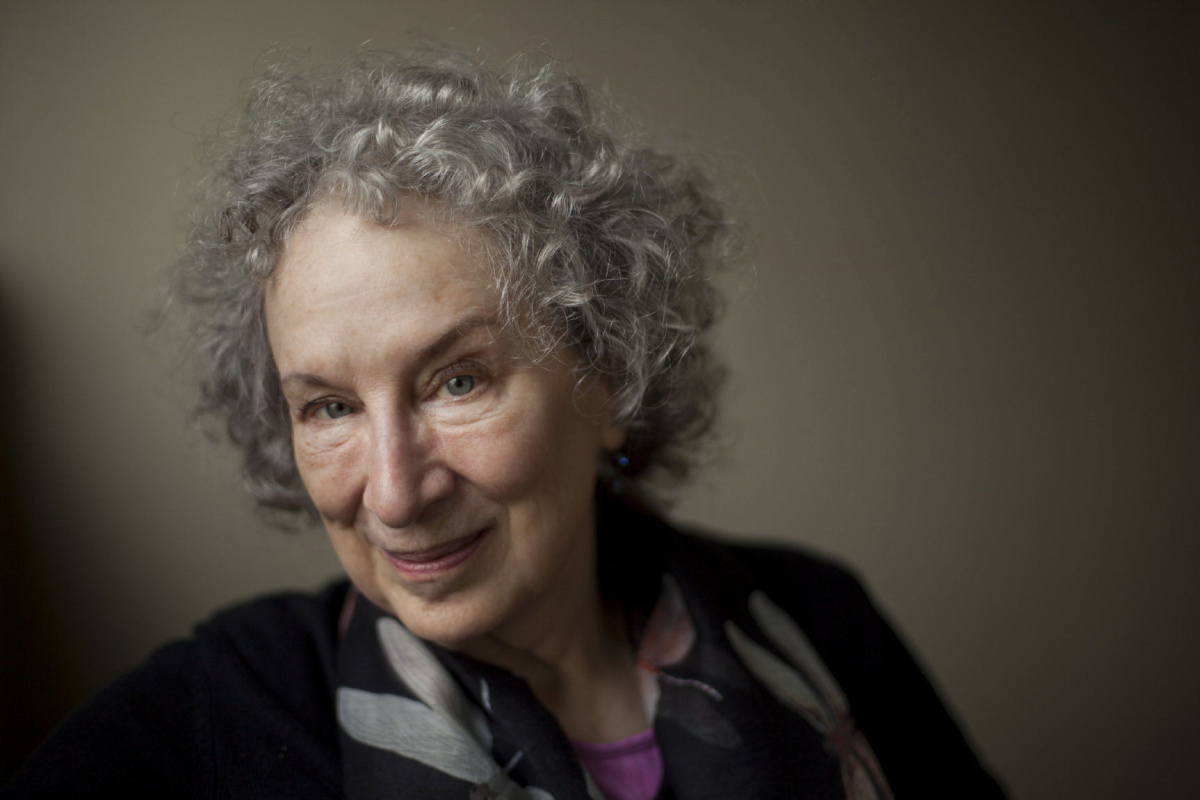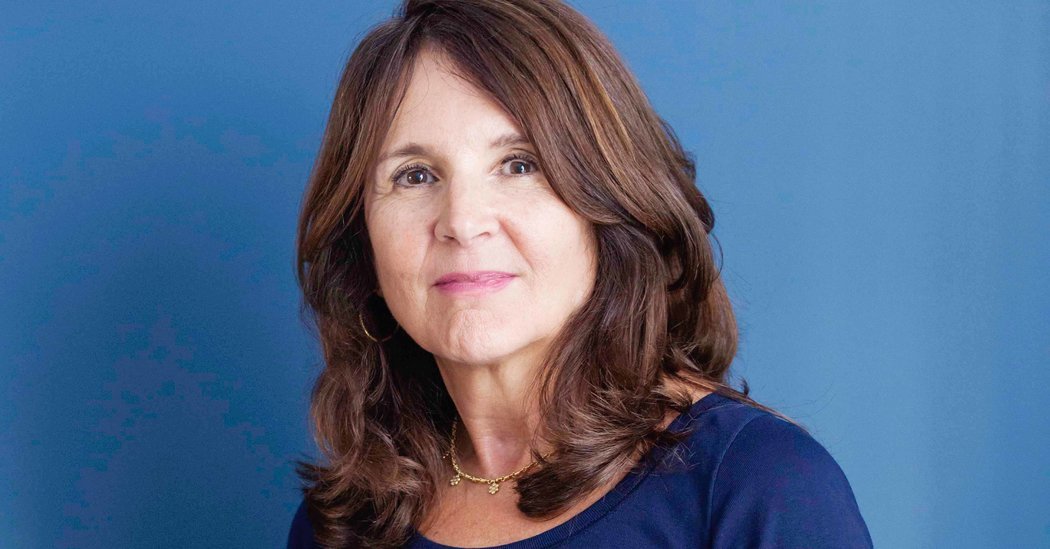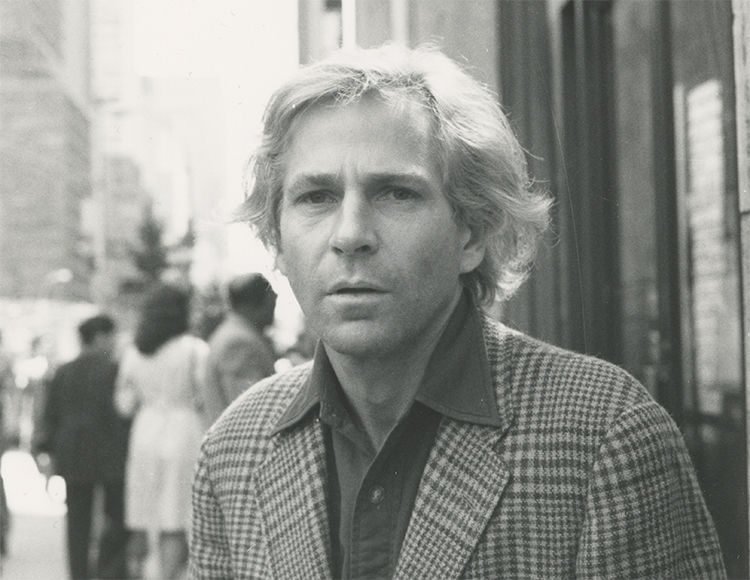
7 Writers Who Were Also Editors (And the Books They Edited)
So Many Hats
An English teacher once asked me, “Are you a writer or an editor?” This isn’t an unusual question, it seems: plenty of writers (and readers) have come up against it, even if it all just boils down to how many hours they have in the day. But some magical people, of course, manage to do it all: write incredible books and also edit them. The premier example of this is of course Toni Morrison, whose impressive list would be much more discussed if she wasn’t also one of the most important novelists of the century in her own right. But still: an editor’s influence can be major, and they are not always well-appreciated for it. So, below, some of the books Morrison published, as well as a peek at the careers of a few other great writers who are (or were, as they case may be) also great editors. NB that I’ve limited the scope here to book publishing (which takes people like William Maxwell, famed editor of The New Yorker and acclaimed novelist, as well as Heidi Julavits, of The Believer and several great books, out of the running), and that as always, there are many more writer-editors than appear on this list (Heidi Pitlor, Julie Buntin, John Hall Wheelock, Jonathan Lee, Morgan Parker, etc. etc.), so add on at will in the comments.
 Photo: Katy Grannan
Photo: Katy Grannan
Toni Morrison
Toni Morrison began her publishing career as an editor at Random House’s textbook division in Syracuse, where she wrote parts of The Bluest Eye after her children fell asleep at night; in 1968 she was transferred to New York City. The Bluest Eye was published in 1970. According to Hilton Als:
A couple of years later, Robert Bernstein, who was then the president of Random House, came across “The Bluest Eye” in a bookstore. “Is this the same woman who works in the scholastic division?” he asked Jason Epstein, then the editorial director of Random House. Morrison had been wanting to move into trade publishing, and went to see Robert Gottlieb, the editor-in-chief of Knopf, an imprint of Random House. Gottlieb recalled the interview: “I said, ‘I like you too much to hire you, because in order to hire you I have to feel free to fire you. But I’d love to publish your books.’ ” He became her editor, and Morrison got a job under Epstein as a trade editor at Random House.
“Toni became not a black editor but the black editor,” Als recalls a friend of Morrison’s telling him. She championed the work of black writers and had a major hand in shaping the face of literature in the 1970s. The first book Morrison published at Random House was Boris Bittker’s The Case for Reparations. According to The Toni Morrison Encyclopedia, she also edited the following:
Toni Cade Bambara, Gorilla, My Love (1972); The Seabirds Are Still Alive (1977); The Salt Eaters (1979); Those Bones Are Not My Child (1999)
Wesley Brown, Tragic Magic (1978)
Chinweizu, West and the Rest of Us: White Predators, Black Slaves and the African Elite (1975)
Lucille Clifton, Generations: A Memoir (1976)
Bill Cosby, Bill Cosby’s Personal Guide to Tennis Power (1975)
Angela Y. Davis, Women, Race and Class (1981)
Henry Dumas, Play, Ebony, Play Ivory (1974); Jonoah and the Green Stone (1976); Rope of Wind and Other Stories (1979)
Leon Forrest, There is a Tree More Ancient Than Eden (1973); The Bloodworth Orphans (1977); Two Wings to Veil My Face (1983)
Middleton A. Harris et al., The Black Book (1974)
James Haskins, The Cotton Club (1977)
George Jackson, Blood in My Eye (1972)
Gayl Jones, Fish Tales (1984)
June Jordan, Things I Do in the Dark (1977)
Rudy Lombard, Creole Feast [Master Chefs of New Orleans] (1978)
James A. McPherson, Railroad: Trains and Train People in American Culture (1976)
Muhammad Ali, The Greatest (1975)
John McCluskey, Look What They Done to My Song (1974)
Huey P. Newton, To Die for the People (1972)
Barbara Chase Rimbaud, From Memphis and Peking (1974)
Quincy Troupe, Giant Talk: An Anthology of Third World Writings (1975)
Ivan van Sertimer, They Came Before Columbus (1976)
 Photo: Lucy Dickens
Photo: Lucy Dickens
Max Porter
Who says you can’t be an acclaimed novelist and a beloved editor at the same time? According to Max Porter, who joined Granta & Portobello Books in 2012, and whose wonderful novel Grief Is the Thing With Feathers was published in 2015, that’s not even all: the editor’s role, he says, is to be “part proofreader, part therapist, part in-house champion and, increasingly, there to put a marketisation on the written word.” In addition to works by Ben Marcus, Sarah Moss, Caroline Lucas and Rebecca Solnit, Porter has worked on Eleanor Catton’s The Luminaries, which won the Booker Prize in 2013, Patrick deWitt’s Undermajordomo Minor, and Han Kang’s The Vegetarian, Human Acts, and forthcoming The White Book. Han Kang being absolutely everything, you know.
 Photo: Peter Ross
Photo: Peter Ross
David Ebershoff
Until recently, Ebershoff—the author of The Danish Girl and The 19th Wife, among others—was Vice President and Executive Editor at Random House, where he seems to have specialized in prizewinners. According to his website, in 2013, Ebershoff was the first person ever to have edited the winner of the Pulitzer Prize in fiction (Adam Johnson’s The Orphan Master’s Son) and the winner of the Pulitzer Prize in history (Fredrik Logevali’s Embers of War) in the same year. In 2015, he edited the winner of the National Book Award in fiction (Adam Jonson’s Fortune Smiles) and the winner of the Pulitzer Prize in biography (David I. Kertzer’s The Pope and Mussolini). Some other books he has edited or published are:
Andrew J. Bacevich, America’s War for the Greater Middle East
Stefan Merrill Block, The Story of Forgetting, The Storm at the Door
Charles Bock, Beautiful Children, Alice & Oliver
Truman Capote, The Complete Stories of Truman Capote, Summer Crossing, Portraits and Observations, The Early Stories of Truman Capote
Teju Cole, Open City, Every Day is For the Thief, Known and Strange Things
Billy Collins, Aimless Love, Ballistics, Horoscopes for the Dead
Jennifer DuBois, A Partial History of Lost Causes, Cartwheel
Shirin Ebadi, Until We Are Free, Iran Awakening
Jill Alexander Essbaum, Hausfrau
David Gilbert, & Sons
Naoki Higashida, The Reason I Jump
Shirley Jackson, Let Me Tell You
Jane Jacobs, Dark Age Ahead, The Nature of Economies
Diane Keaton, Then Again, Let’s Just Say It Wasn’t Pretty
Thomas Kunkel, Man in Profile
Bernard Lewis, The Crisis of Islam
Norman Mailer, The Castle in the Forest, Why Are We at War?, The Selected Letters of Norman Mailer, On God, Mind of an Outlaw, Modest Gifts
Norris Church Mailer, A Ticket to the Circus, Cheap Diamonds
Imbolo Mbue, Behold the Dreamers
David Mitchell, Black Swan Green, Cloud Atlas, The Thousand Autumns of Jacob de Zoet, The Bone Clocks, Slade House
Azadeh Moaveni, Honeymoon in Tehran
Sonia Nazario, Enrique’s Journey
Sara Nović, Girl at War
Amy Ellis Nutt, Becoming Nicole
Joyce Carol Oates, A Garden of Earthly Delights, Them
Katha Pollitt, The Mind-Body Problem, Learning to Drive
Austin Reed, The Life and the Adventures of a Haunted Convict
W. G. Sebald, A Place in the Country, Across the Land and the Water, Campo Santo
Gary Shteyngart, Super Sad True Love Story, Little Failure
Sebastian Smee, The Art of Rivalry
Jean Stein, West of Eden
Ronald C. White, Jr., American Ulysses, A. Lincoln, The Eloquent President
 Photo: Marta Iwanek/Toronto Star
Photo: Marta Iwanek/Toronto Star
Margaret Atwood
In 1970, Margaret Atwood joined Canadian publishing house Anansi (or the House of Anansi, sometimes), though for the life of me I can’t find out which books she edited there (the Anansi 50th anniversary website says that Atwood edited Michael Ondaatje’s The Collected Works of Billy the Kid, but Ondaatje himself cites Dennis Lee.)
But I still have a fun fact for you. According to Anansi, it was Atwood who saved the press in 1972:
Knowing the situation surrounding Anansi’s finances—coupled with Dave and Dennis’s desire to bring more Canadian literature into schools—Margaret Atwood decided to help by turning her notes about Canadian literature into a book. Survival: A Thematic Guide to Canadian Literature was considered to be the most startling work ever written about Canadian literature at the time, and it has since continued to be read and taught and shape the way Canadians look at themselves.
Thanks to Survival, Anansi survived. For the next seventeen years, the company, run with great enterprise and energy by Anne Wall and Jim Polk, carried on, publishing titles like Coming Through Slaughter by Michael Ondaatje (1976), The Hockey Sweater and Other Stories by Roch Carrier (1979), and Basic Black with Pearls by Helen Weinzweig (1980).
 Photo: Jake Hamilton
Photo: Jake Hamilton
David Levithan
In addition to being a bestselling YA author, Levithan is a publisher and editorial director at Scholastic, and the founding editor of the PUSH imprint, where he has edited books by Suzanne Collins, Maggie Stiefvater, Ann M. Martin, Garth Nix, Patrick Carman, Natalie Standiford, Alice Hoffman, Gordon Korman, M. T. Anderson, Blake Nelson, Cecil Castellucci, “and many, many other awesome writers.” Fun fact #2: Levithan got his start in publishing working on the Babysitters Club series, as a 19-year-old intern checking the books for continuity. “The first rule was making sure everything stayed faithful to that world,” he told The Atlantic. “I was the guy on the subway not only reading the BSC, I was reading it with a highlighter to keep track of who spoke French, who had green eyes, and so on.” Later, that notebook was published too.
 Photo: Maggie Shannon
Photo: Maggie Shannon
Jill Bialosky
Jill Bialosky really does it all: she’s a poet, a novelist, an essayist and an Executive Editor and VP and W.W. Norton. She’s even written about her many hats in this very space: “Am I an editor and a closet writer, or am I foremost a writer and a closet editor? Full confession. I am both. One enterprise could not exist without the other. They fuel each other in inexplicable ways. They are two sides of the same coin.” Among other books, she’s edited the following:
Molly Antopol, The UnAmericans, The After Party
Kevin Canty, The Underworld
Lan Samantha Chang, Hunger, Inheritance, All is Forgotten, Nothing is Lost
John Dufresne, Louisiana Power and Light, Deep in the Shade of Paradise, The Way That Water Enters Stone, Johnny Too Bad, Requiem, Mass.
Amanda Filipacchi, The Unfortunate Importance of Beauty
Sandra Gilbert, The Culinary Imagination: How (and Why) We Think, Write and Work with Food in the 21st Century
Olivia Laing, Everybody
Karen Latuchie, The Honey Wall
Claire Messud, The Burning Girl
Tova Mirvis, The Ladies Auxiliary
Honor Moore, The Bishop’s Daughter
Neel Mukherjee, The Lives of Others
Samantha Peale, The American Painter Emma Dial
Heidi Pitlor, The Birthdays
Kristin Valdez Quade, Jubilee, Via Dolorosa
Mary Roach, Stiff: The Curious Lives of Human Cadavers, Spook: Science Tackles the Afterlife, Bonk: The Curious Coupling of Science and Sex, Packing for Mars: The Curious Science of Life in the Void, Gulp: Adventures on the Alimentary Canal, Grunt: The Curious Science of Humans at War
Frances Sherwood, The Book of Splendor
Mark Slouka, Labyrinth of the Heart, Dominion
Manil Suri, The City of Devi, The Age of Shiva, The Death of Vishnu
Madeleine Thien, Do Not Say We Have Nothing
 Photo: Bud Lee
Photo: Bud Lee
Gordon Lish
To be fair, Gordon Lish is more famous for being an editor than he is for being a writer, and particularly for his heavy editing of Raymond Carver’s work. But, despite his protests, he is also a writer in his own right. In The Guardian, David Winters highlighted his legendary teaching as well as his novels: “Crucially, the Carver issue has unfairly obscured Lish’s own unique contribution to fiction. From the menacing monologue of Dear Mr Capote to the outrageously ironic Zimzum, Lish has produced a wealth of avant-garde prose, worthy of the pioneers of literary modernism. His writing represents the US’s answer to Samuel Beckett and Thomas Bernhard.” He was hired as the fiction editor at Esquire in 1969, and left it for Knopf in 1977, where he edited and published a slew of fantastic books, including (from a list assembled by Blake Butler; more can be found here):
Jennifer Allen, Better Get Your Angel On (1989)
Roy Blount Jr., Crackers (1980)
Harold Brodkey, Stories In An Almost Classical Mode (1988)
Hob Broun, Inner Tube (1985), Cardinal Numbers (1988)
Raymond Carver, What We Talk About When We Talk About Love (1981), Cathedral (1983) Ultramarine (1986)
Stanley Crawford, Some Instructions to my Wife… (1978)
Don DeLillo, The Players (1977), Running Dog (1978), The Names (1982), The Day Room (1987)
Brian Evenson, Altmann’s Tongue (1994)
Barry Hannah, Airships (1978), Ray (1980), The Tennis Handsome (1983), Captain Maximus (1985)
Amy Hempel, Reasons to Live (1985), At the Gates of the Animal Kingdom (1990)
Michael Hickins, The Actual Adventures of Michael Missing (1991)
Tony Hiss, Experience of Place (1992)
Noy Holland, The Spectacle of the Body (1994)
Paulette Jiles, Cousins (1991)
Walter Kirn, My Hard Bargain (1990)
Sheila Kohler, The Perfect Place (1989), Miracles in America (1990)
David Leavitt, Family Dancing (1984), The Lost Language of Cranes (1986)
Nancy Lemann, Lives of the Saints (1985)
Gary Lutz, Stories in the Worst Way (1996)
Thomas Lynch, Skating With Heather Grace (1987)
Ben Marcus, The Age of Wire and String (1995)
Sam Michel, Under the Light (1991)
Greg Mulcahy, Out of Work (1993)
Yannick Murphy, Stories in Another Language (1987)
Cynthia Ozick, Bloodshed and Three Novellas (1976), Leviathan (1982), Art & Ardor (1983), The Cannibal Galaxy (1983), The Messiah of Stockholm (1987), Metaphor & Memory (1989), The Shawl (1989), Fame & Folly (1996), The Puttermesser Papers (1997)
Bette Pesetsky, Stories Up To A Point (1981)
Ann Pyne, In the Form of a Person (1992)
Dawn Raffel, In the Year of Long Division (1994)
Victoria Redel, Where The Road Bottoms Out (1995)
Mark Richard, The Ice at the Bottom of the World (1989)
Mary Robison, Days (1979)
Christine Schutt, Nightwork (1996)
Jason Schwartz, A German Picturesque (1998)
Mona Simpson, Lost Father (1992)
Ken Sparling, Dad Says He Saw You At The Mall (1996)
Lily Tuck, Interviewing Matisse (1991)
Diane Williams, The Stupefaction (1996)
Joy Williams, Breaking and Entering (1988)
Rudy Wilson, The Red Truck (1987)
Emily Temple
Emily Temple is the managing editor at Lit Hub. Her first novel, The Lightness, was published by William Morrow/HarperCollins in June 2020. You can buy it here.



















